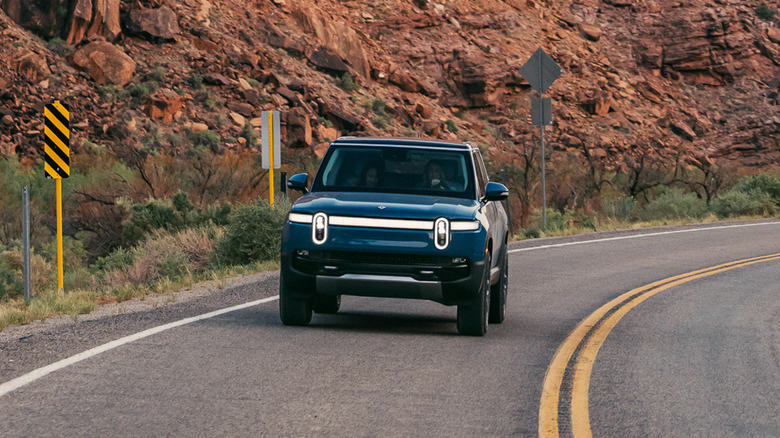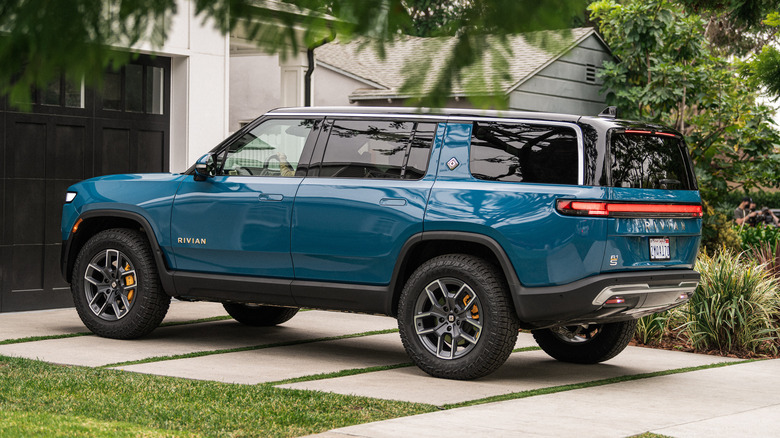Why Is The Rivian SUV So Much More Expensive Than Its Competitors?
The Rivian R1S is a high-tech full-size SUV, with its manufacturer claiming it's the "world's first Electric Adventure Vehicle."
According to Rivian's website, the R1S is the brand's go anywhere, do anything SUV for people who want more interior cargo space than the R1T truck. It's available with a quad-motor system that delivers 835 horsepower to all four wheels. Pair that with an estimated range of more than 300 miles on a charge, and the Rivian R1S is a pretty serious EV.
That capability comes with a price. A base dual-motor R1S with a standard 260-mile range battery starts at an eye-watering $78,000. The uber-fast quad-motor variant with the upgraded battery comes in at $92,000. That's a serious chunk of change.
Expensive electric SUVs with supercar-like specs are nothing new. The Tesla Model X starts over the six-figure mark and tops out at over $130,000 for the tri-motor Plaid edition. The crab-walking Hummer EV is about as close anyone can get to buying an electric tank and it starts over $84,000. Even the more sedate F-150 Lightning rings in at over $96,000 for the Platinum trim, and it can power your house in the event of a power outage.
When it comes to electric SUVs, the Rivian R1S is certainly on the higher end of the price spectrum.
More motors equal more money
Compared to the more economically focused $30,000 Equinox EV that Chevy announced earlier this week, the Rivian R1S might as well be priced like a Lamborghini. The 2023 Ford Mustang Mach E starts at 46,895. That's still several thousand less than the base model Rivian.
In March of this year, Rivian faced immense backlash over price hikes for people already preordered its vehicles. When customers started canceling preorders, Rivian eventually relented and rolled back the price hikes for people who already ordered. New customers, however, were out of luck.
Jiten Behl, the brand's Chief Growth Officer said: "Like most manufacturers, Rivian is being confronted with inflationary pressure, increasing component costs, and unprecedented supply chain shortages and delays for parts (including semiconductor chips." Those factors can certainly increase the cost of a vehicle, even at the expense of customer loyalty.
When it comes to on-paper specs, the Rivian R1S's high price tag makes some sense, especially when it's kitted out to have four motors. But compared to other EVs from more established brands, the Rivian might be a hard sell.

